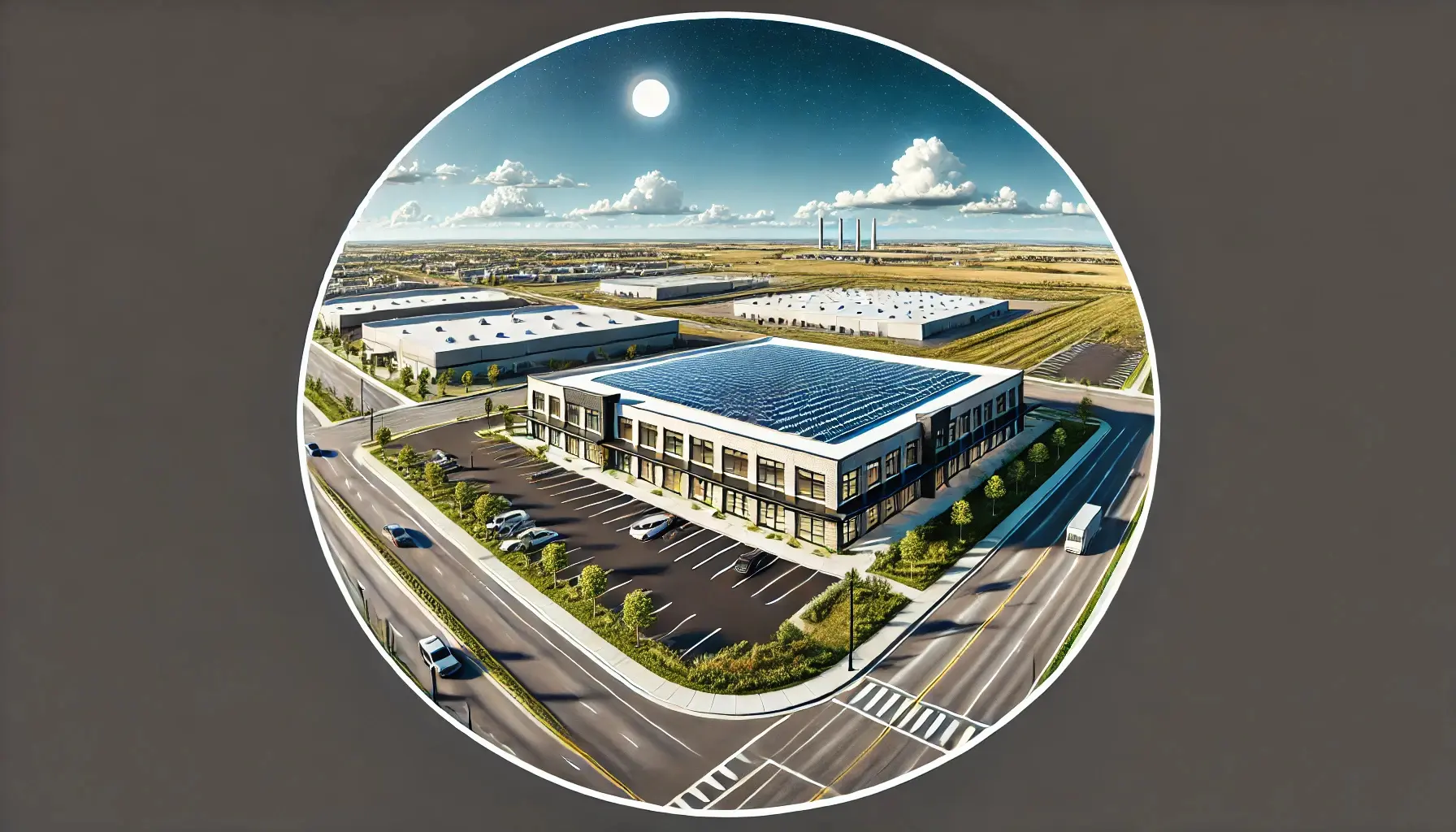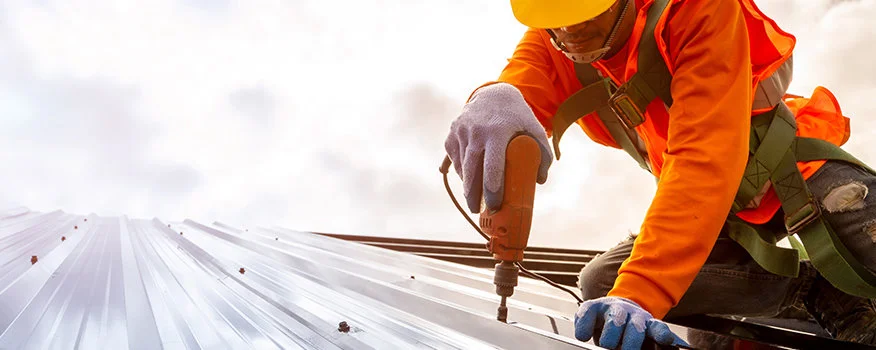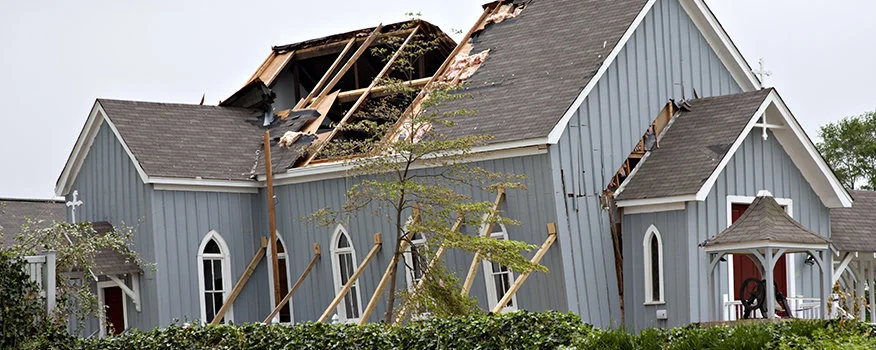When you look at commercial buildings across Wichita, Derby, and the surrounding Kansas cities, one feature stands out: flat roofs. From retail stores to warehouses, flat roofs are a common choice for business owners. But what makes them so popular?
Flat roofs are affordable, easy to maintain, and built to handle the unique weather challenges of Kansas. Plus, they offer extra usable space for equipment, eco-friendly upgrades, or even rooftop gardens. Let’s explore why flat roofs are the top choice for Wichita’s commercial properties and how they might be the perfect fit for your business.
Key Takeaways: Why Flat Roofs Are Popular for Wichita Commercial Properties
Cost-Effective Solution
Flat roofs require fewer materials and less labor to install, saving business owners money.
They are energy-efficient, especially when paired with reflective coatings, helping reduce cooling costs during Wichita’s hot summers.
Simple Maintenance
Flat roofs are easier and safer to inspect and repair due to their level design.
Regular maintenance, like clearing drains and sealing minor tears, extends their lifespan to 20–30 years or more.
Structural Advantages
Flat roofs can support heavy equipment such as HVAC systems or solar panels, making them ideal for commercial needs.
Their design is more resistant to Kansas’s high winds, reducing the risk of storm damage.
Climate Adaptability
Reflective coatings keep buildings cooler in summer, while drainage systems handle heavy rain effectively.
Flat roofs perform well in both extreme heat and cold, making them a reliable choice for Kansas’s variable weather.
Versatile and Functional
Businesses can use flat roofs as functional spaces, like rooftop gardens, patios, or event areas.
Green roofs contribute to sustainability by improving insulation and reducing a building’s carbon footprint.
Eco-Friendly Features
Modern flat roofs use recyclable, energy-efficient materials such as TPO and EPDM.
Green roof options help businesses save on energy costs while supporting environmental goals.
Tailored for Commercial Success
Flat roofs offer businesses in Wichita a durable, adaptable, and cost-effective solution for their properties.
A Brief History of Flat Roofs in Wichita
Flat roofs have been a go-to design for commercial buildings for decades. Why? Because they are simple, functional, and cost-effective.
In Wichita, flat roofs gained popularity after World War II when businesses were expanding rapidly. They needed practical and affordable building solutions, and flat roofs were the perfect answer. Over time, these roofs became a standard feature of industrial and commercial buildings. Today, they remain a top choice for their modern look and unmatched practicality.
Why Flat Roofs Are Cost-Effective
One major reason for the widespread use of flat roofs is their affordability.
Lower Installation Costs
Flat roofs use fewer materials and require less labor to install compared to sloped roofs, which makes them much more budget-friendly. For instance, a new retail shop in downtown Wichita could save thousands of dollars simply by opting for a flat roof.
Energy-Saving Benefits
Flat roofs can also lower your energy bills. They’re easy to coat with reflective materials that bounce sunlight away, keeping buildings cooler during Wichita’s hot summers. This can lead to significant savings on air conditioning costs.
Long-Term Value
Flat roofs are durable and can last for decades with proper maintenance. Business owners appreciate the reduced need for costly repairs and replacements, making flat roofs an investment that pays off in the long run.
Simple Maintenance for Flat Roofs
Flat roofs make it easier to inspect, clean, and repair your roof compared to sloped designs.
Easy Access
Thanks to their level surface, flat roofs are much safer and easier to walk on. Inspections, cleaning, or minor repairs can be done quickly and efficiently.
For example, a café owner in Wichita could schedule regular roof inspections twice a year. During these check-ups, any minor problems—like debris buildup or small tears in the roofing membrane—can be fixed before they turn into bigger, more expensive issues.
Affordable Repairs
When repairs are necessary, flat roofs are often cheaper to fix. Whether it’s sealing a leak or replacing a small section of roofing material, these tasks are usually quicker and less disruptive than repairs on a sloped roof.
Maintenance Plans for Longevity
Regular maintenance, such as clearing drains and reapplying protective coatings, can extend the life of a flat roof by years. With these simple steps, your flat roof can easily last 20–30 years or more.
Structural Advantages of Flat Roofs
Flat roofs aren’t just easy to maintain—they’re also strong and versatile.
Perfect for Heavy Equipment
Flat roofs can support heavy equipment like HVAC units, solar panels, or industrial ventilation systems. Their even surface ensures that weight is distributed safely.
For example, a Wichita warehouse could use its flat roof to install solar panels without worrying about uneven weight distribution or structural damage.
Built for Wind Resistance
Kansas is known for its windy weather, but flat roofs handle these conditions well. Unlike sloped roofs, which can lose shingles or tiles in high winds, flat roofs are less likely to sustain wind damage.
Designed for Wichita’s Climate
Flat roofs are well-suited to handle Wichita’s unpredictable weather, from blazing summers to chilly winters.
Cool Roof Coatings for Hot Summers
Flat roofs can be coated with reflective materials to reduce heat absorption, keeping the building cooler and more energy-efficient during Wichita’s scorching summers.
Efficient Rainwater Management
While some worry about water pooling on flat roofs, modern drainage systems make this a non-issue. Gutters, downspouts, and advanced drainage designs help direct water away from the roof, protecting the structure even during heavy storms.
For instance, a large warehouse in Derby could install a high-capacity drainage system to ensure rainwater doesn’t collect on the roof, even during Kansas’s heaviest rains.
Versatility: Beyond Just a Roof
Flat roofs offer more than protection—they can also provide valuable extra space.
Green Roofs and Eco-Friendly Designs
Flat roofs are ideal for creating green spaces, such as rooftop gardens or small parks. These spaces can reduce heating and cooling costs, improve air quality, and provide a unique feature for employees or customers.
Imagine a tech startup in Wichita adding a rooftop garden where team members can relax during breaks. It’s not just functional—it’s a statement of the company’s commitment to sustainability.
Event and Recreation Areas
Flat roofs can also be transformed into event spaces, patios, or recreation areas. For example, a downtown restaurant might use its flat roof as an open-air dining area, offering guests a unique experience with a view of the Wichita skyline.
Eco-Friendly and Sustainable Benefits
Flat roofs are a smart choice for businesses looking to reduce their environmental impact.
Energy-Efficient Materials
Modern flat roofs are made from materials like TPO (Thermoplastic Polyolefin) or EPDM (Ethylene Propylene Diene Monomer), which are recyclable, durable, and help with insulation.
Green Roof Options
By installing a green roof, businesses can further reduce their energy costs while contributing to a cleaner environment. These roofs improve insulation, lower energy bills, and help reduce the building’s carbon footprint.
Flat Roof vs. Sloped Roof: A Hypothetical Example
Imagine a Wichita business owner deciding between a flat and sloped roof for their new building. After considering the lower installation costs, ease of maintenance, and potential for solar panels or a green roof, they choose the flat roof. This decision saves them thousands upfront and provides long-term benefits, including lower energy bills and extra functional space.
Why Choose Solid Rock Commercial Roofing?
At Solid Rock Commercial Roofing, we specialize in flat roofs and are committed to providing Wichita businesses with top-notch service.
What Makes Us Different
- Expertise: We install and repair TPO, PVC, and EPDM flat roofing systems with precision and care.
- Long-Lasting Warranties: Our industry-leading warranties give you peace of mind.
- Personalized Service: We take the time to understand your business’s unique needs and provide tailored roofing solutions.
We also stay ahead of the curve by using cutting-edge technology to ensure your roof is built to last.
Conclusion
Flat roofs are a great choice for commercial properties in Wichita. They’re cost-effective, durable, and versatile, making them ideal for businesses of all sizes. Whether you need a new roof or want to upgrade an existing one, a flat roof can help you save money, reduce energy use, and create valuable extra space.
Ready to explore your flat roofing options? Contact Solid Rock Commercial Roofing today for a free consultation. Let’s build a roof that works as hard as you do!
Frequently Asked Questions (FAQs) About Flat Roofs for Wichita Commercial Properties
What is a flat roof, and how is it different from a sloped roof?
A flat roof is a nearly level roof with a slight slope for drainage, unlike sloped roofs that have a more pronounced angle. Flat roofs are common in commercial properties because they are more cost-effective, easier to maintain, and offer extra usable space for equipment or recreational purposes.
Are flat roofs more prone to leaks?
Flat roofs can sometimes develop pooling water, which may lead to leaks if not addressed. However, modern flat roofing systems, such as TPO or EPDM membranes, are designed to prevent leaks when properly installed and maintained. Regular inspections and drainage systems can further reduce this risk.
How long does a flat roof last?
With proper care and maintenance, flat roofs can last 20–30 years or more. Regular inspections, cleaning, and resealing are essential to extending their lifespan.
Are flat roofs a good choice for Wichita’s weather?
Yes! Flat roofs handle Wichita’s weather well. They can be coated with reflective materials to reduce heat during hot summers and are strong enough to support snow loads in the winter. Modern drainage systems also ensure effective rainwater management during heavy storms.
Can flat roofs support heavy equipment?
Absolutely. Flat roofs are designed to hold heavy equipment like HVAC units, solar panels, and industrial fans. Their level surface ensures even weight distribution, making them ideal for commercial properties.
How do I maintain a flat roof?
To maintain a flat roof, schedule regular inspections to check for damage, clear debris, and clean drains. Promptly address minor issues, such as membrane tears or standing water, to avoid costly repairs later.
Are flat roofs environmentally friendly?
Yes! Flat roofs can be made with energy-efficient and recyclable materials like TPO or EPDM. They’re also great for green roofs, which add insulation and reduce energy costs while supporting sustainability.
How much does it cost to install a flat roof?
The cost of a flat roof varies based on the size of the property and the materials used. Flat roofs are typically more affordable to install than sloped roofs because they require fewer materials and less labor. Contact Solid Rock Commercial Roofing for a detailed estimate tailored to your property.
Can flat roofs be used as functional spaces?
Yes! Flat roofs are versatile and can be transformed into rooftop gardens, patios, or recreational areas. Many businesses use them for event spaces or to enhance their property’s appeal.
Why should I choose Solid Rock Commercial Roofing for my flat roof?
Solid Rock Commercial Roofing specializes in flat roofing systems and offers:
Personalized service to meet the unique needs of Wichita businesses.
Expertise in modern materials like TPO, EPDM, and PVC.
Industry-leading warranties for peace of mind.
This article has been a collaboration between Rusty Cryer and OpenAI’s ChatGPT. Created on November 22, 2024, it combines AI-generated draft material with Cryer’s expert revision and oversight, ensuring accuracy and relevance while addressing any AI limitations.




